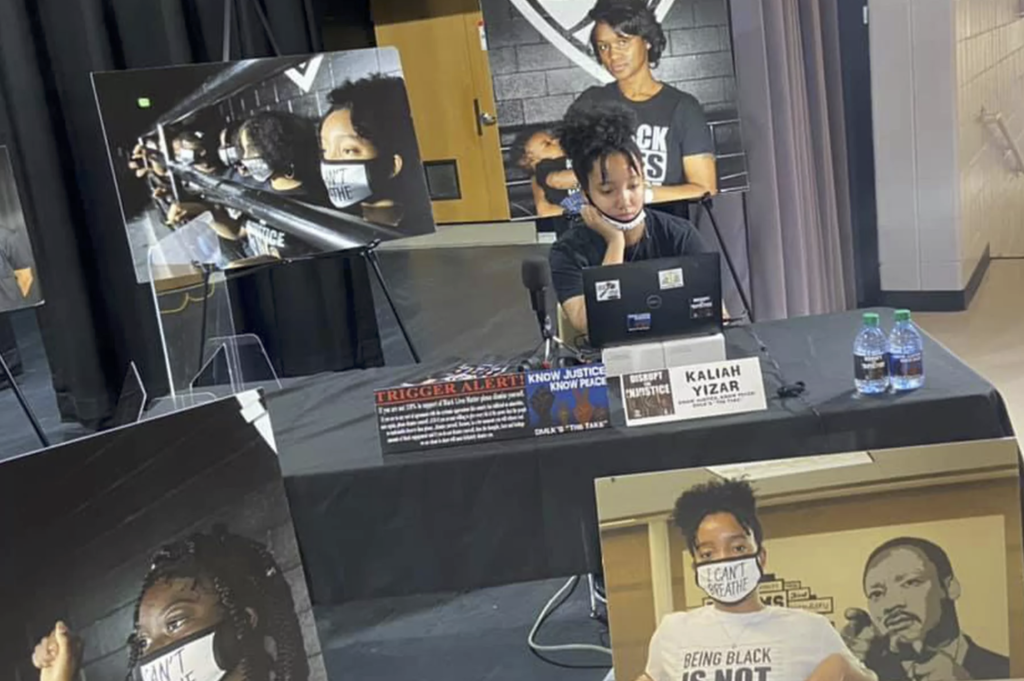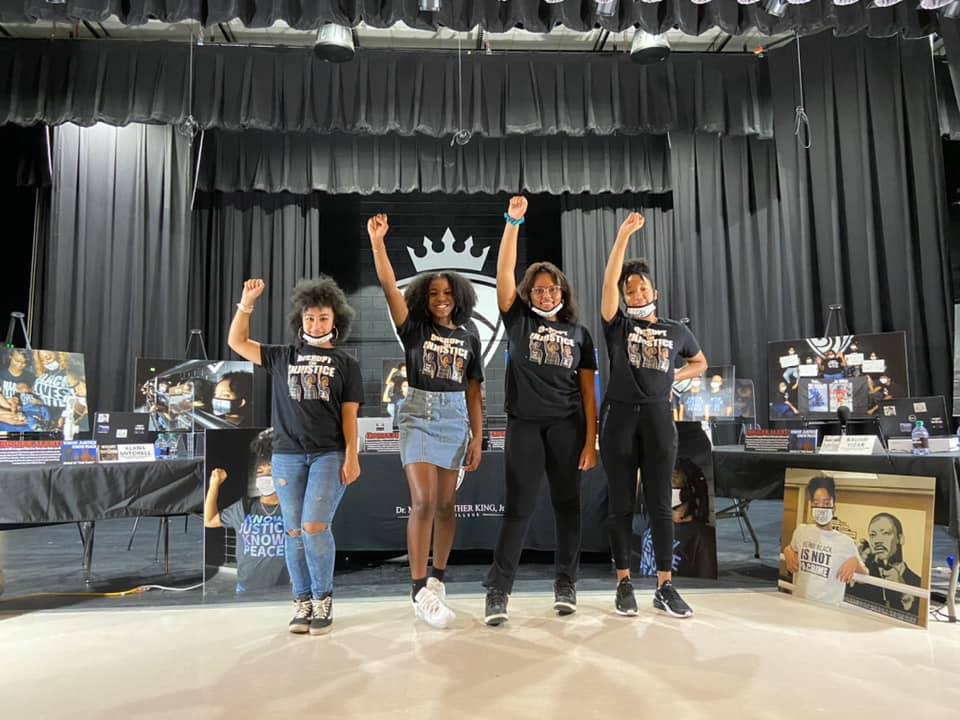
Kaliah Yizar, 15, on the set of the podcast. Courtesy Kimberly Grayson
As the nation reckons with racial justice and police brutality, a group of Denver students has started a podcast to elevate the voices of Black youth.
In a powerful moment from the first episode, three teenagers shared personal experiences with racism. Fifteen-year-old Dahni Austin talked about the stares she got when she walked into a summer camp where nearly all the other girls were white.
When one of the white campers called a fellow Black camper a racial slur, Austin said she was too afraid to say anything. “I was too scared to stand up for her,” Austin said, “because I felt like with all the stares we were already getting, I would be judged and I would be stereotyped.”
Austin is a rising sophomore at Denver’s Dr. Martin Luther King, Jr. Early College high school and a member of the school’s Black Student Alliance. She and other BSA members started the podcast in the wake of the police killing of George Floyd, an unarmed Black man whose killing by a white police officer in Minneapolis sparked protests nationwide, including here in Denver.
The students wanted to protest too, but their principal, Kimberly Grayson, was worried for their safety. Over group text, she encouraged them to find another way to speak up. Rising senior Jenelle Nangah said the students settled on the idea of a podcast.
“We wanted people to hear our voices,” said Nangah, 17.
 Courtesy Kimberly Grayson
Courtesy Kimberly GraysonThe podcast is called “Know Justice, Know Peace: DMLK’s The Take.” The first episode was released on Facebook on the Fourth of July. (Watch it below.) It tackled the history of the holiday and why Juneteenth, a commemoration of the ending of slavery, is not as widely recognized.
“How come in this one nation — with our saying ‘One nation under God’ — our celebrations aren’t equal?” 15-year-old Kaliah Yizar, a rising sophomore, asked in the episode.
“Why is my liberation not as important as yours?”
With help from their principal, the students plan to produce eight episodes. The second episode, set to be released July 16, will focus on the history curriculum in Denver Public Schools.
Students from the school have been advocating for changes to the curriculum for months. A trip last fall to the National Museum of African American History and Culture in Washington, D.C., highlighted the shortcomings of what they’d been taught in class, the students said. Denver’s curriculum, they said, focuses on white stories and treats Black history as supplemental.
After the trip, the teachers at their school committed to making curriculum changes right away, adding units on the cultural and political history of Africa, American slave rebellions, Marcus Garvey, and Tulsa’s Black Wall Street, to name a few.
The students then set their sights on the district as a whole, advocating in front of the school board to push the changes districtwide. District officials agreed, and say the changes are now underway. Deputy Superintendent of Academics Tamara Acevedo will be a guest on the second episode of the podcast, along with Principal Grayson and other educators.
The working title? “Dead White Men Tell No Tales.”
“In the next podcast, we wanted to talk about how it’s important to not tell just one side of history,” Nangah said. When that happens, she said, “people start to believe that’s how it was. They only see us being oppressed. That honestly makes it worse.”
Yizar sees a connection between the lack of Black history education in schools and the protests happening now, which she likened to the Civil Rights Movement of the 1960s.
“Without knowing our history and what could have made things go better, it allows history to repeat itself,” Yizar said. “When we allow history to repeat itself, we are relying on the next generation to come up with something new.”
Chalkbeat is a nonprofit news site covering educational change in public schools.
